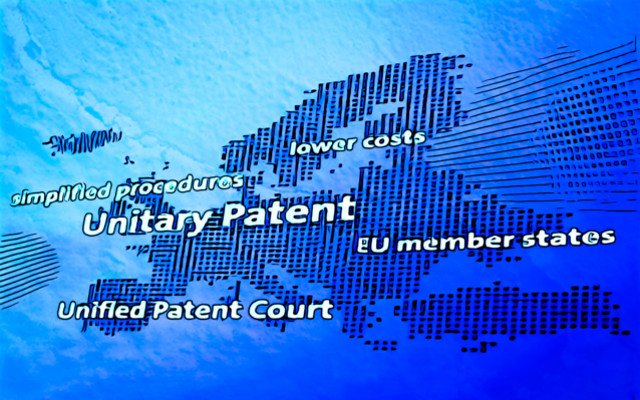As of June 1, 2023, the European patent system with unitary effect came into effect. It represents procedural simplification and cost savings for the companies that will use it.
The long history of the ‘Unitary Patent’
‘Patent protection unitary will promote scientific and technological progress and the functioning of the internal market by making access to the patent system easier, less costly and legally secure. It will also improve the level of patent protection by making it possible to obtain uniform patent protection in participating member states and the elimination of cost and complexity for the benefit of businesses throughout the Union‘.
So says recital 4 of EU Regulation 1257/2012 (1) which created the institution of the European Patent with Unitary Effect (‘Unitary Patent’) based on the enhanced cooperation of 25 member states in the area of Unitary Patent Protection – Decision 2011/167/EU – (2) which Italy joined in 2015.
More than 10 years after that agreement, the International Agreement on the Unified Patent Court (UPT), which initiates the Unitary Patent System, finally enters into force. (3) This instrument complements existing patent protections at the national level (for Italy, the UIBM) and at the European level (EPO – European Patent Office).
More protection, less cost
The Unitary Patent allows simultaneous protection in almost all European Union countries-at present, 17 have ratified the TUB Agreement, including Italy-and will have a maximum term of 20 years. The patent application is filed, as with the European patent, with the European Patent Office without the need to obtain national validation. If it is accepted, the proponent will obtain, in a single procedure, protection in all accession states, which will result in significant economic and bureaucratic savings. (4)
Intellectual property (IP) is an essential element for businesses to take advantage of their intangible assets, such as trademarks, designs, models and data. More streamlined, transparent and effective rules will especially help small and medium-sized enterprises (SMEs) to be more competitive and make the most of their inventions.
To understand the economic importance of this reform, according to the European Commission, IP-intensive industries account for nearly half of total GDP and more than 90 percent of all EU exports. And nearly 76 percent of intra-Union trade in the period from 2017 to 2019 was generated by patent-intensive industries. Which from June 1 will also have more protection thanks to the entry into force of the Unified Patent Court (UPT) Agreement. (5)
Structure of the Unified Court
Through the TUB, dispute resolution also becomes more efficient and cost-effective. The Unified Court has exclusive jurisdiction over both European patents and patents with unitary effect. The court of first instance is headquartered in Paris, with sub-offices planned in Munich and London, the latter of which was moved to Milan as a result of Brexit through an agreement between France, Germany and Italy. Specifically, actions related to patents contained in IPC section list A – Human Needs – are assigned to Paris while those contained in IPC section list C – Chemistry and Metallurgy – to Munich (TUB Agreement, Annex II).
Each member state may host a local division of the CFI or may share a Regional Division with one or more other member states. The court panels have a multinational composition and generally consist of three judges. In contrast, the Court of Appeals is composed of five judges from different states and, along with the Chancery, is located in Luxembourg.
The language question
The procedural language before local or regional divisions of the CFI is the language or one of the official languages of the state hosting the court or the language chosen by the states in the case of a shared seat. States can also choose one or more official EPO languages, namely English, French or German (for Italy, Italian and English).
Before the central division (and in local ones should the parties so agree) the procedural language will be that in which the patent was granted. While on appeal, the language will be that which was used in the first instance proceedings. (6)
Reg. EU 1260/2012 Article 4 provides for circumstances in which the unitary patent holder provides a full translation of the patent:
- at the request of the other party in the case of infringement, in the language in which the alleged infringement took place or in the language of the alleged infringer;
- at the request of the competent court, in the language used before that court.
In both cases the costs are borne by the patent holder. Member states may provide a compensation scheme for translations up to a ceiling. (7)
Alessandra Mei
Notes
(1) EU Regulation no. 1257/2012 of the European Parliament and of the Council of 17 December 2012 implementing enhanced cooperation in the area of the creation of unitary patent protection. https://eur-lex.europa.eu/legal-content/IT/TXT/?uri=celex%3A32012R1257
(2) 2011/167/EU: Council Decision of March 10, 2011 authorizing enhanced cooperation in the area of the creation of unitary patent protection. https://eur-lex.europa.eu/legal-content/IT/TXT/?uri=celex%3A32011D0167
(3) Agreement on a Unified Patent Court, 2013/C 175/01 https://eur-lex.europa.eu/legal-content/IT/TXT/?uri=celex%3A42013A0620%2801%29
(4) Ministry of Enterprise and Made in Italy. Starting June 1, the unitary patent system. 1.6.2023
https://uibm.mise.gov.it/index.php/it/al-via-dal-1-giugno-il-sistema-del-brevetto-unitario
(5) European Commission. Intellectual property: harmonized EU patent rules promote innovation, investment and competitiveness in the single market. 4/27/2023 https://ec.europa.eu/commission/presscorner/detail/it/ip_23_2454
(6) Unified Patent Court. Language of proceedings https://www.unified-patent-court.org/en/court/language-proceedings
(7) EU Regulation no. Council Decision 1260/2012 of December 17, 2021 on the implementation of enhanced cooperation in the area of the creation of unitary patent protection with regard to the applicable translation arrangements. https://eur-lex.europa.eu/legal-content/IT/TXT/?uri=celex%3A32012R1260
Graduated in Law from the University of Bologna, she attended the Master in Food Law at the same University. You participate in the WIISE srl benefit team by dedicating yourself to European and international research and innovation projects.




